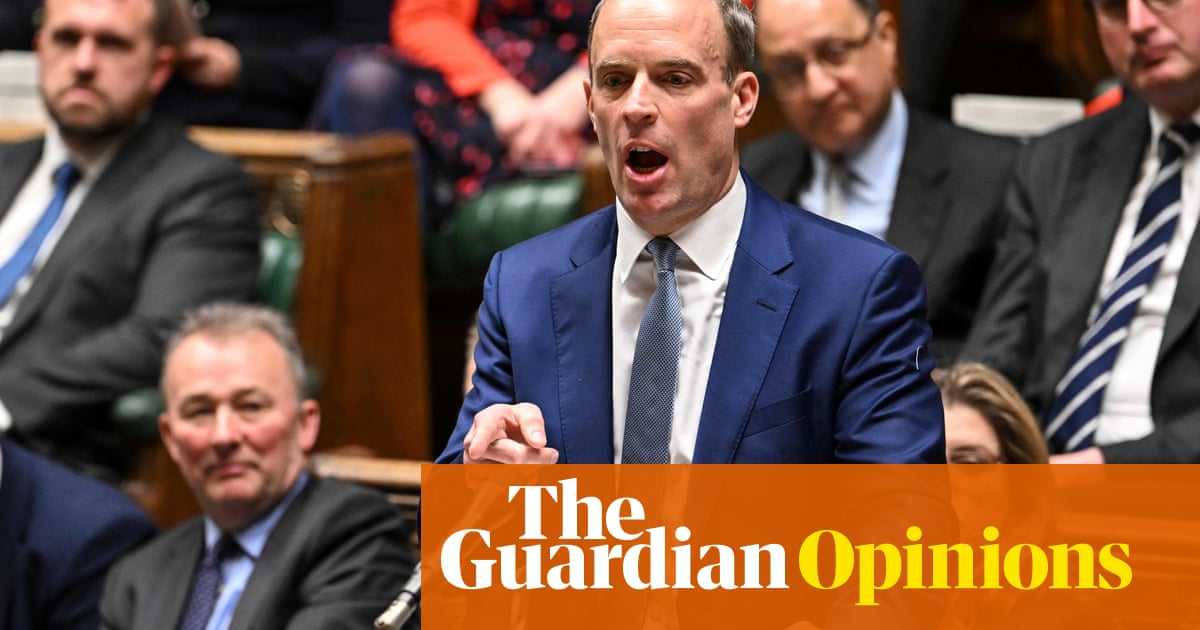
Britain could do little to “coercively force” China if it tries to block Hongkongers from coming to the UK to take up a government visa pledge, the foreign secretary, Dominic Raab, has admitted.
Boris Johnson has said he will honour a promise to offer nearly 3 million residents of the former British colony the right to settle in the UK and ultimately apply for citizenship after Beijing imposed a controversial new national security law.
The UK government believes the new legislation breaches the Sino-British joint declaration, which aimed to smooth the transition when the territory was handed back to China in 1997.
However, Raab said on Wednesday evening that if Beijing tried to stop people with British National (Overseas) status (BNO) from leaving Hong Kong, there would be little that could be done by the UK.
He told ITV’s Peston programme: “Ultimately if they follow through on something like that there would be little that we could do to coercively force them.”
Raab continued: “There is an issue around freedom and human rights in Hong Kong, and there is an issue around China keeping its word on an international obligation it made to the United Kingdom back in 1984.
“I wouldn’t want to be naive about this: I think we need to be realistic. But I do think that China as a rising, leading member of the international community is sensitive to the reputational risk in all of this but clearly not sufficiently that it hasn’t proceeded anyway ... There is diplomatic leverage, there are other ways that we can persuade China not to fully implement either the national security law or some of the reprisals you talk about.
“But ultimately we need to be honest that we wouldn’t be able to force China to allow BNOs to come to the UK.”
As of February, there were nearly 350,000 BNO passport holders, while the government estimated there are around 2.9 million BNOs living in Hong Kong.
Asked how many people the government anticipated would come to the UK from Hong Kong, he said: “It’s difficult to give a precise forecast but I think it is fair to assume that only a proportion of those that are offered the new status that we set out in the House of Commons today will take it up.”
He said he was working with other countries in the region to discuss a lifeboat operation. He said: “We think the majority will probably hunker down in Hong Kong, and others would leave to other countries in the region.”
Downing Street said those with BNO status will be eligible to travel to the UK immediately before the details of the scheme are finalised “in the coming weeks” and that they will not face salary thresholds.
The security law in Hong Kong – which came into effect on Tuesday night – makes activities deemed subversive or secessionist punishable by imprisonment, and is seen as targeting anti-government demonstrators.
Hong Kong police made their first arrests on Wednesday under the new law, including one person said to have displayed a sign with the union flag, which called for Hong Kong’s independence.
The Chinese ambassador to the UK, Liu Xiaoming, was summoned to the Foreign Office on Wednesday, where the permanent secretary, Sir Simon McDonald, told him the imposition of the new legislation on Hong Kong breaches the Sino-British joint declaration.
However, the ambassador appeared unrepentant following his visit, tweeting: “After turbulent months in the latter half of last year, the national security law will bring the order&stability to Hong Kong and get its economy back on track.”
China views its actions as one of the last steps towards decolonisation, but an early test of its willingness to preserve the country’s freedoms will come in the autumn elections for the legislature.












